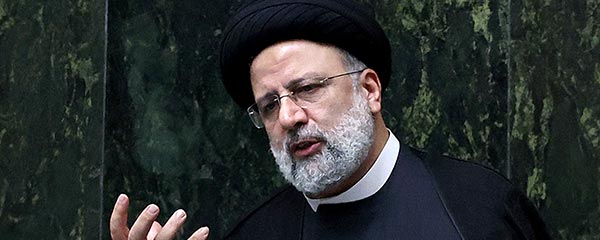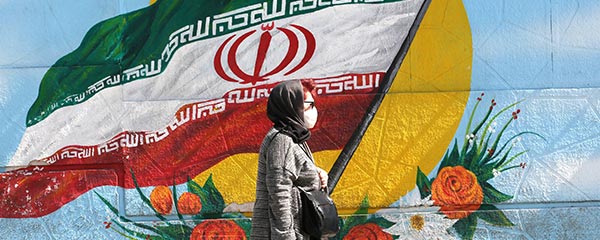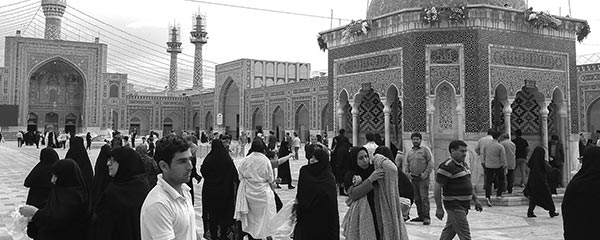Story Highlights
- 59% of Iranians say their local economy getting worse
- 91% say it is a bad time to find a job where they live
WASHINGTON, D.C. -- Iran's offer on Thursday to sign on to the Paris climate agreement if the international community lifts economic sanctions is being met with derision abroad, but back at home, a deal like that likely sounds good to everyday Iranians who are struggling. Iranians continue to face severe economic woes, with nearly six in 10 (59%) in 2021 saying their local economy was getting worse.
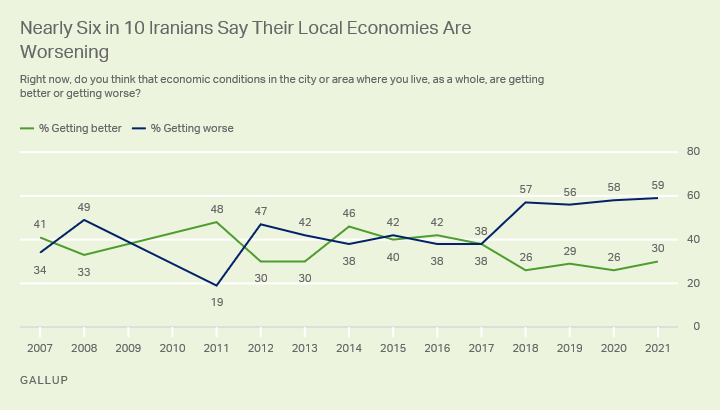
Line graph. Iranians' perceptions of their local economies. Currently, 59% say their local economies are worsening, while 30% say they are improving.
These latest data come from Gallup's survey conducted Aug. 24-31, three weeks after the country's new president, Ebrahim Raisi, took office. Raisi inherited an economy battered by sanctions for decades, though some of these were lifted following the negotiation of the Joint Comprehensive Plan of Action (JCPOA) between the U.S., European and Iranian governments in 2015. Under the terms of the JCPOA, Iran agreed to dismantle its nuclear weapons program in exchange for the lifting of sanctions.
The opportunity for sanction relief from the U.S. largely ended in 2018, when then U.S. President Donald Trump withdrew from the JCPOA and reimposed stringent sanctions on Iran. Since then, no less than 56% of Iranians have said their local economies are getting worse.
Vast Majority of Iranians Negative on Local Job Markets
More than nine in 10 Iranians (91%) say it is a bad time to find a job where they live, unchanged from 2020. At no point in Gallup's trend since 2007 have less than 66% of Iranians said it was a bad time to find a job in their local areas, though since 2018, pessimism has been even higher than in previous years. From 2018 on, with the reimposition of U.S. sanctions on the country, no less than 90% of Iranians have reported it was a bad time to find a job locally.
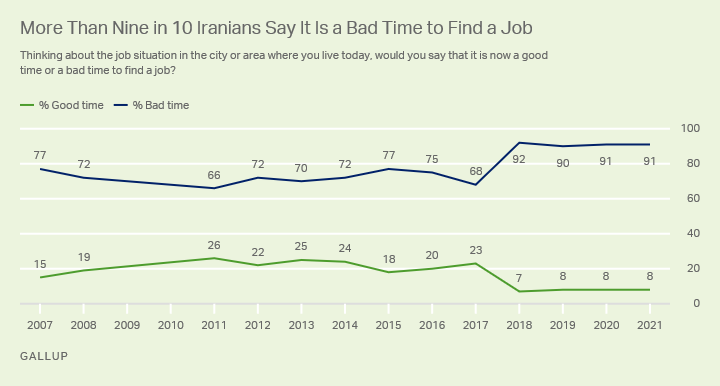
Line graph. Iranians' perceptions of their local job markets. Currently, 91% of Iranians say it is a bad time to find a job where they live and 8% say it is a good time.
Bottom Line
The former Trump administration's reimposition of sanctions and the COVID-19 pandemic both seriously affected Iran's economy, with the country's GDP contracting by an estimated 4.99% in 2020 alone. Inflation in the country has spiked and petroleum exports have plummeted, the impact of which has likely been exacerbated by the impact of the COVID-19 pandemic and the lockdown imposed to control the disease. The effects of these concrete measures of economic pain are reflected in Iranians' negative views of their economies and job markets.
These woes likely helped sour Iranians on the country's former President Hassan Rouhani, who had a 32% job approval rate in the last survey before he left office. Iranians are substantially more optimistic about Raisi. However, that optimism is likely to fade if he cannot turn the country's economy around -- a task that is likely to prove difficult the longer stringent U.S. and other international sanctions remain in place. Recent increases in oil prices around the globe may provide some level of cushioning for the new government.
To stay up to date with the latest 优蜜传媒News insights and updates, .
For complete methodology and specific survey dates, please review .
Learn more about how the works.

